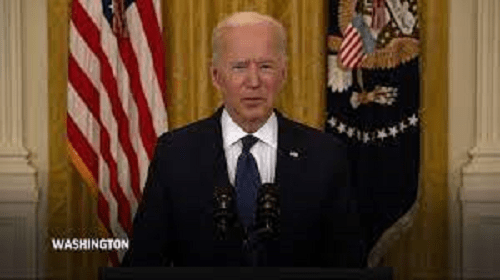
5.16.21 – Oklahoman — OKC businesses struggle to find workers as customers return from pandemic.
Stop by a car dealership on a Saturday and chances are the sales person won’t be as quick with a greeting and walk around the lot. Or maybe the chef at your favorite restaurant also will be the one serving the food.
Teens looking for work might be pleasantly surprised to see jobs at McDonald’s coming with $500 bonuses and wages starting at $17 an hour. And on a recent visit to a local Panda Express, customers hoping to grab some lunch were told to return in 45 minutes because not enough employees had arrived to open the business.
When it comes to the service-based economy, both locally and nationwide, demand is clearly outpacing supply and jeopardizing a long hoped-for recovery from the yearlong pandemic. An April U.S. Census survey reports 37% of small businesses in hospitality and food services were seeing operations hampered by inability to fully staff up.
With half of Oklahomans over 18 fully vaccinated or on their way to be fully vaccinated for COVID-19, and with infection rates dropping, businesses are seeing customers flush with stimulus checks and ready to spend after months stuck at home.
The demand for labor represents a rapid reversal for Oklahoma City, which saw unemployment rise to 13% in April 2020 at the start of the pandemic and now has the fourth lowest jobless rate in the country among large cities at 4%.
More:Talking tacos and the state of dining out as we push back against the pandemic
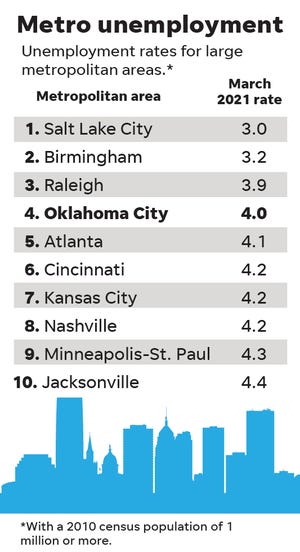
Nationwide hiring shortage hits Oklahoma
Jeff Seymour, executive vice president over economic development at the Greater Oklahoma City Chamber, said the labor shortage is hitting employers nationwide as the latest round of stimulus payments and extended unemployment benefits pump more money into the economy.
“What we’re hearing is the unemployment benefits have softened requirements on job searching and hiring,” Seymour said. “In the service industry, people were hired over a long period of time as the industry scaled and now they’re trying to hire all at once.”
The surge in labor demand, however, is complicated by parents still educating children at home and workers who decided to pursue higher education or got the chance to pursue new opportunities during the economic turbulence of the past year.
And while the national debate is often focused on whether to end extended unemployment benefits or raise minimum wage, Seymour doesn’t think the problem — or the solution — is that simple.
“There are a lot of compounding things, not just one,” Seymour said. “It’s not about people not wanting to work or being able to find jobs.”
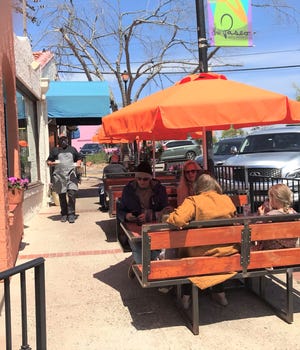
OKC restaurants, retailers need workers
Nationwide, a Deloitte Insights study reports the manufacturing industry lost 578,000 jobs during 2020, a figure representing about six years of job gains. Yet, the study added, at any given moment in the past six months nearly 500,000 manufacturing jobs remained open as employers struggled to attract and retain a quality workforce.
The American Trucking Association, meanwhile, reports 60,000 drivers were needed before the pandemic and the need has grown as drivers retire and demand increases. Your stories live here.Fuel your hometown passion and plug into the stories that define it.Create Account
Over the next decade, the association warned, about 1.1. million new hires will be needed to keep up with demand. The National Tank Truck Carriers, meanwhile, is warning of an immediate threat that a shortage of truck drivers might result in higher fuel prices and shortages as they are challenged with keeping up with a quick resumption in travel.
The Greater Oklahoma City Chamber assembled a list of the most impacted local industries by doing a survey of 90 days of online job postings. This list indicates truck drivers are being sought out the most, followed by registered nurses, retail sales positions, customer service and retail supervisors.
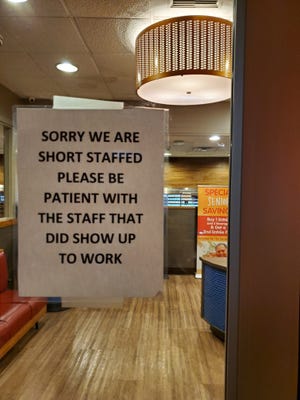
Hiring less hospitable in leisure industry
Eric Long, research economist with the chamber, estimates 6,400 jobs were shed in the local leisure hospitality industry as hotels and restaurants were forced to close and then struggled to stay afloat as the pandemic stalled most travel.
“We lost those 6,400 jobs gradually over time last year and now overnight it seems as if we’re trying to hire all of them back in a short period,” Long said. “Seeing that sector starting to rebound, it’s expected to recover 5,900 jobs by the end of this year.”
Jeff Penner, director of the Greater Oklahoma City Hotel Association, confirmed hotels are struggling to staff up as bookings rebound.
“Housekeeping is almost impossible to find,” Penner said. “The front desks are just as bad. In all my years in the business I’ve never seen it like this. It’s tough.”
Penner said the next surge in business is expected to start within the next few months as business travel resumes. That might already be starting as airports across the country, including Will Rogers World Airport, report traffic is hitting pre-pandemic levels.
“Employees just don’t seem to want to come back to work,” Penner said. “Unemployment money was extended to August and maybe when that comes to an end we will see that change. But right now it’s tight.”
Downtown OKC:Two years after nationally-televised Devon Tower window washer accident, boards come down
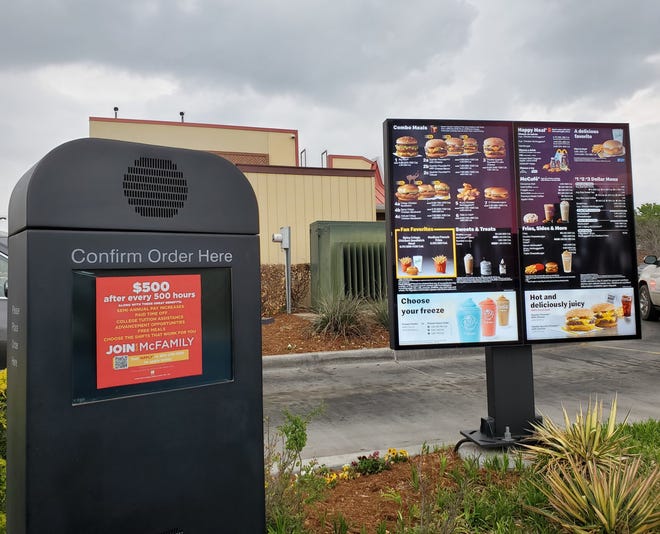
Staffing shortage, business booms
The hit on restaurants may be one of the most visible examples of the labor shortage this spring with long lines, delayed openings and reduced menus at fast food restaurants to service disappointments at sit-down eateries.
Before COVID-19 struck, chef Ryan Parrott routinely visited table-side with guests at Picasso’s Cafe, but when he recently spun through the front door of his restaurant onto the sidewalk carrying a cup of soup in each hand, it was out of necessity.
“Running food out (of the kitchen) because we don’t have enough hands,” he said after delivering to a family dining in a sidewalk booth.
Parrott, who is a partner in Humankind Hospitality — the umbrella company over fellow Paseo properties OSO, The Other Room and Frida Southwest — is thrilled business has picked up since Valentine’s Day, but the staffing shortage has left workers scrambling.
“The job is just so much harder right now,” he said. “We’re thankful for the uptick in business. We’re excited to see revenue flowing again, but because of the staff shortage it’s exhausting right now.”
That concerns him about the level of service his restaurants can provide.
“Look, if you come and dine with us, we’re going to deliver an amazing experience, but we’re doing it with less people right now. And there’s consequences with that.”
Among them might be continued diminished dining capacity.
“We’re only going to seat as many people as we think we can give the service we’re known for,” Parrott said.
Craft beer:OKC’s Vanessa House, Texas-based 903 Brewers team up for fruit infused slushie beer
Restaurants cutting capacity
Chef Kurt Fleischfresser of Western Concepts and Vast has faced similar challenges and said his restaurants also face the unwelcome task of turning away diners because they don’t have the staff to properly serve them.
“We’re only taking so many reservations right now,” Fleischfresser said. “On the weekends it’s a little better, but this is as bad a situation as I’ve seen in 40 years.”
At Paseo Grill, owner Leslie Rawlinson said her main concern is kitchen staff.
“I’ve never seen it quite like this,” she said Tuesday while delivering food to tables on her own patio. “We had a Saturday night where we operated with only four people in the kitchen. That would’ve been unheard of before.”
Another factor unmeasured by the chamber is a competing new employer in town — hundreds of dispensaries opened throughout the metro area with the legalization of medical cannabis.
Asked if the cannabis industry had tapped into the food-service staffing pool, Fleischfresser said, “Absolutely.”
He went on to explain an oversaturated restaurant market before the pandemic had already created a bull market for anyone with average or better food-service skills both in the dining room and the kitchen.
“Then you throw in COVID and it drove some people into other industries,” he said.
More:Masks still a reality of life for some OKC businesses, regardless of CDC recommendations
Keeping patrons happy
Fleischfresser said the unemployment benefits continue to be an obstacle, though a diminishing one.
“It’s time for the unemployment folks to enforce the policies,” he said. “That’s all we ask. We’ve got to get rid of incentives not to work. We really need people capable of coming back to go ahead and do it.”
Among the new staffing obstacles is the positions and expenses created by the pandemic, which still hasn’t ended. Parrott said shifting the focus from dine-in to carryout created unintended consequences.
“Before COVID we did a nice take-out business,” Parrott said. “But it was a small percentage of our daily business. Once the pandemic hit, takeout became the primary driver.”
Increased pick-ups triggered Picasso’s converting a waiting area into a dedicated takeout area with a staffer to greet and manage orders. Because carryout business remains brisk, Parrott said the new position is still needed.
“The problem I see is consumers are bouncing back for dine-in faster than we can get ready, and I worry it’s going to create conflict.”
Conflict is the one thing no hospitality professional craves.
“I’ve never really thought about barring patrons before,” Parrott said. “But that’s something I’ve actually had to sit down and think about how to handle. It’s the last thing anyone in hospitality wants to do.”
Short-term and long-term responses
Large banners offering higher starting pay and benefits are just the start of how employers are battling to attract and recruit employees.
Some, like Homeland Stores, have been spared from the worst of the labor shortages, a blessing CEO Marc Jones credits to the company’s longtime employee stock ownership plan.
“We’ve had a harder time hiring than usual,” Jones said. “It’s never easy. We’re a demanding industry with tough hours and it’s often manual work.”
Jones said some stores in the chain have felt the pinch more than others. But the company is not experiencing the worker losses reported by other businesses. At Homeland, the employees are referred to as owners, whose stock allows them to share in the company’s financial success.
“We’ve got a good portion of our workforce not just for 10 years in the plan, but for the past 20 to 30 years,” Jones said.
The challenge, Jones said, is keep new employees to stick around for the first few months.
“They don’t know what to expect,” Jones said. “But if we can keep them beyond that five months, they build confidence and it gets better.”
After a year of dismal tourist travel, Bricktown Water Taxi owner Chad Huntington faced competing in a far tougher labor market to hire drivers for the popular boat tours of the historic district.
“We started out depleted,” Huntington said. “Normally we have more carry-over from the past season. But last year we never got to full strength simply due to the pandemic.”
As a seasonal employer, Huntington said he has consistently raised wages to stay competitive. This season he has reworked the hiring process to streamline assessments and response time.
“We feel like if we don’t respond really quickly to quality candidates, they’re gone before we even have an opportunity to interview them,” Huntington said. “Everyone else is fighting for the limited number of quality candidates that are out there.”
More:Masks still required for now at Target, Walgreens, CVS and more, but retailers review new CDC mask guidance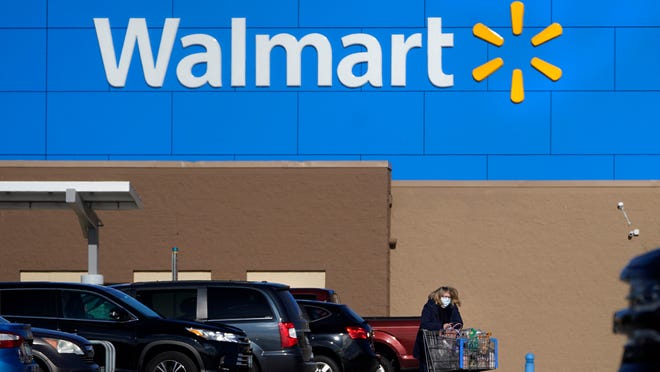
Competition is boosting pay
Jonathan Fowler, president of Fowler Holdings, is hiring a recruitment officer for the first time in the 48-year history of his family-owned vehicle dealerships.
“I don’t know of anybody in any industry I talk to who is not trying to hire,” Fowler said. “Companies are shifting marketing dollars to hiring instead of trying to draw more customers.”
Fowler said he is seeing pent-up demand with customers returning to his dealerships.
“On Saturdays at our dealerships we would never want a customer to wait to have someone to greet them,” Fowler said. “We want to provide service as quickly as possible. Yet on some Saturdays we can’t always get to every customer on the lot; we don’t have enough people to greet them and say hello.”
Fowler wants a recruitment officer who will visit Career Techs and high schools and connect with students who might have interest in the car business. The other steps being taken, he said, is to compete on wages with other employers trying to rebuild their work forces.
“We raised our minimum wage to $12 an hour and we’ve been working on that and looking to escalate that in the next 24 months to $15 an hour,” Fowler said. “We feel like we can’t get there fast enough. If people can get a job at a gas station or at a marijuana dispensary at $15 an hour, we have to be competitive with that.”
Staff writer Steve Lackmeyer is a 30-year reporter, columnist and author who covers downtown Oklahoma City and related urban development for The Oklahoman. Contact him at slackmeyer@oklahoman.com. Please support his work and that of other Oklahoman journalists by purchasing a subscription today at subscribe.oklahoman.com.
